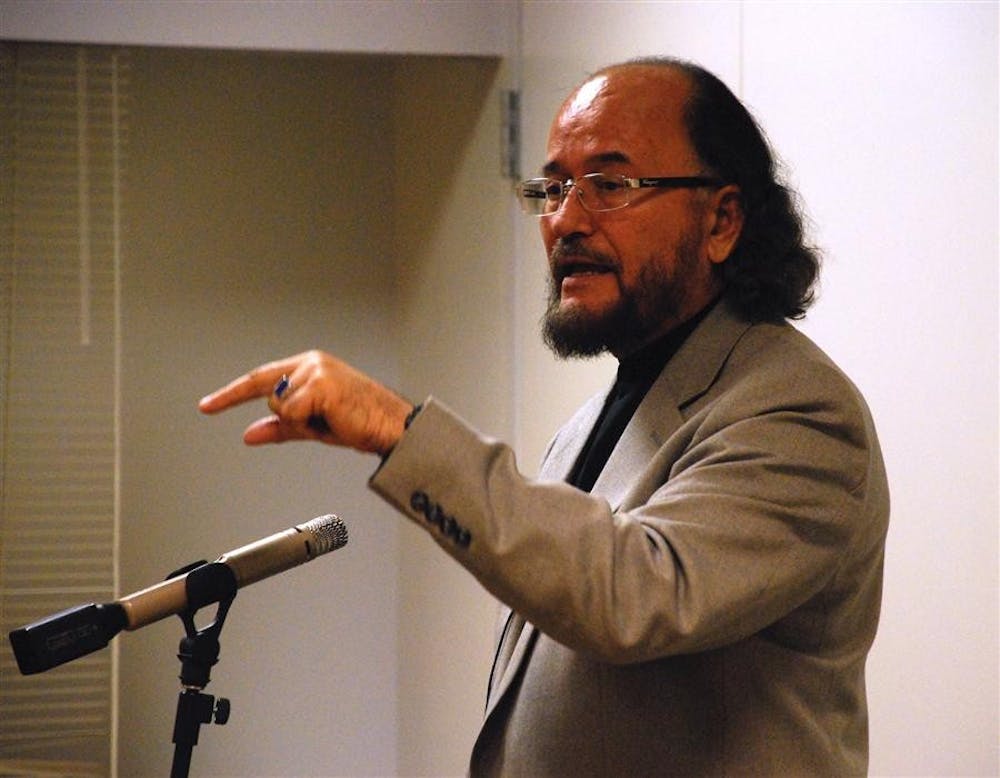Nazif Shahrani, chairman of the department of Near Eastern Languages and Cultures, questioned President Barack Obama’s new Afghanistan strategy in a speech at the Monroe County Public Library on Thursday.
Shahrani, who was born, raised and partly educated in Afghanistan, recently returned from the country. He spent the last part of November in Kabul, the capital of Afghanistan.
On Nov. 25, President Obama announced his revised policy toward Afghanistan, which includes an escalation of 30,000 troops, in addition to the 68,000 American troops already there.
Shahrani said he thinks the escalation is a big mistake, and he questioned whether it could address the biggest problems facing Afghanistan, which lie in its system of governance.
“It’s not a military problem, it’s a political problem,” Shahrani said.
He spoke about corruption and cronyism within Afghan President Hamid Karzai’s administration, a problem Obama also mentioned in his speech. Shahrani also questioned whether a constitution placing so much power in the central government could work for Afghanistan. Under the current political system, free and fair elections are impossible, Shahrani said.
The presidential election in Afghanistan this summer yielded allegations of widespread voting fraud.
“Those people who are in fact responsible for the management of elections have a vested interest in maintaining the status quo,” Shahrani said. “Karzai didn’t have to go and stuff those ballots himself. The system is geared to do that, and in fact that’s what happened.”
Shahrani recommended a system that empowers local communities and gets them involved in government.
Bloomington resident Juliet Frey said she came to Shahrani’s speech because she was concerned about Obama’s announcement to send more troops. “(The speech) was very informative and it gave me a much better sense of what is really the problem in Afghanistan,” Frey said. “I was very interested in what he said about local government as opposed to a highly centrist government.”
Obama’s new strategy includes plans to begin withdrawing troops from Afghanistan in 18 months. But Shahrani doubted if Afghanistan’s most serious problems could be addressed in such a short time frame.
“It’s almost like farming,” Shahrani said. “It’s not state-building, it’s state-growing ... We always use the wrong analogies for these things - state-building as if it was some mechanical thing you could do with nuts and bolts.”
Bloomington resident James Pennington said he came to the speech to hear Shahrani address why the United States went to war with Afghanistan in the first place.
When an audience member asked Shahrani a similar question, he said he believes this had to do with a lack of transparency in the way American foreign policy is made.
“As long as foreign policy is made outside the moral purview of this country, there is no hope of improvement,” he said.
For all his criticism, Shahrani said he remains optimistic that the Obama administration will recognize mistakes in its policy, and that it could change course.
“I’m not pessimistic if the right steps are taken, but I am pessimistic if we continue with the status quo,” Shahrani said. “If we fail, we have failed politically, not militarily.”
IU professor discusses Afghanistan policy

Get stories like this in your inbox
Subscribe





